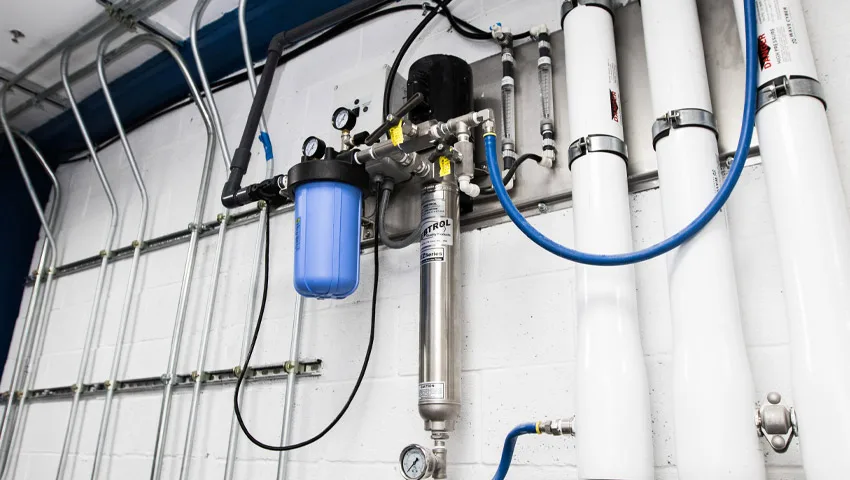Clean and safe water is a fundamental requirement in any commercial operation. Whether it’s a restaurant serving beverages, a manufacturing plant producing goods, or a healthcare facility ensuring sanitary conditions, the quality of water directly impacts both products and customer satisfaction. Implementing the right water filtration solution is essential for businesses to maintain high standards.
In this article, we’ll explore how water filtration systems contribute to better product quality, improve customer trust, and enhance business performance.
The Impact of Water Quality on Business Operations
Water is a critical resource for many industries, and its quality affects operations in numerous ways:
1. Taste and Consistency in Food and Beverages
Restaurants, cafes, and food manufacturers depend on clean, purified water to deliver consistent flavors. Impurities, such as chlorine or sediments, can alter the taste and aroma of food and drinks, diminishing the overall quality and experience for customers.
2. Product Durability and Performance in Manufacturing
Impurities in water used during manufacturing can compromise the integrity of products. For instance, hard water deposits can lead to scaling, affecting the performance of machinery and finished goods.
3. Sanitation and Compliance
In industries like healthcare and hospitality, maintaining hygiene is critical. Clean water is necessary for sanitizing equipment, maintaining safety standards, and ensuring compliance with regulations.
4. Customer Health and Satisfaction
Impure water can lead to safety concerns and health risks for customers. Businesses that prioritize clean water not only avoid potential liabilities but also build trust and loyalty.
Benefits of Using a Commercial Water Filtration System
1. Enhanced Product Quality
For businesses such as restaurants and beverage manufacturers, filtered water is vital for maintaining consistent flavor and quality in their offerings. Clean water ensures a better product that meets customer expectations.
2. Extended Equipment Lifespan
Waterborne impurities can lead to scale buildup and equipment wear, causing costly repairs. A filtration system prevents these issues, reducing downtime and extending the life of machinery.
3. Improved Customer Trust
Consumers value safety and consistency. By using filtered water, businesses demonstrate their commitment to quality, building loyalty and trust among their customers.
4. Environmental Benefits
Filtration systems reduce dependency on single-use plastic bottles by providing high-quality, reusable water options. This not only lowers costs but also supports sustainability goals.
Drawbacks to Consider
While a commercial water filtration system offers significant benefits, there are considerations businesses should be aware of:
| Pros | Cons |
|---|---|
| Enhances product quality and customer satisfaction. | Initial installation can be expensive. |
| Reduces equipment maintenance costs. | Regular maintenance and filter replacements are required. |
| Demonstrates a commitment to sustainability. | Some systems, such as reverse osmosis, can waste water during operation. |
How to Choose the Right System
When selecting a water filtration system for commercial use, consider the following factors:
1. Specific Contaminants
Conduct water testing to identify the impurities that need to be removed.
2. Capacity Requirements
Ensure the system can handle your current and future water usage demands.
3. Compliance Standards
Confirm that the system meets the regulatory standards of your industry.
4. Ease of Maintenance
Choose a system with manageable maintenance requirements to avoid disruptions.
Final Thoughts
Investing in a commercial water filtration system is a strategic choice for businesses that rely on water as a key component of their operations. It not only improves the quality of products and services but also enhances customer satisfaction and operational efficiency. By addressing both practical and environmental concerns, filtration systems contribute to the long-term success of any business.
FAQs About Water Filtration Systems
1. What is a commercial water filtration system?
It’s a system designed to remove contaminants from water used in business operations, ensuring safety and quality.
2. How do these systems benefit businesses?
They improve product quality, extend equipment life, and enhance customer satisfaction, all while supporting regulatory compliance.
3. Are there different types of filtration systems?
Yes, options include reverse osmosis, activated carbon filters, ultraviolet purification, and water softeners, each tailored to address specific needs.
4. Are they suitable for large-scale operations?
Absolutely. These systems are designed to handle high volumes of water and can be scaled to meet increasing demand.
















